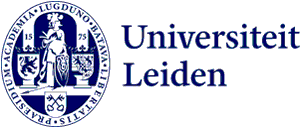
Owada keynote Fatou Bensouda on international justice: ‘We need courageous leadership’
Are international courts effective? Dr Fatou Bensouda, a former Lead Prosecutor of the International Criminal Court in The Hague (ICC), will discuss this issue during her lecture at the Owada Symposium 2025. The ICC’s efficacy depends on the actions of its member states, she says.
As a child growing up in The Gambia, Fatou Bensouda would sneak into courtrooms to watch trials. This was the sign of greater things to come with appointments such as Minister of Justice in The Gambia and Chief Prosecutor of the International Criminal Court in The Hague. Currently The Gambia’s High Commissioner in London, Bensouda comes to Leiden University to give the keynote lecture on 14 October at the annual Owada Symposium, an academic event approaching the interaction between international law and international relations from an interdisciplinary perspective.

What sparked your passion for international criminal justice?
‘I believe that injustice done to any individual or group is injustice done to every one of us. Since I was very young, I have identified with this feeling, ensuring that victims of crimes are not denied justice. I remember when I first went to Rwanda as a member of the International Criminal Tribunal for Rwanda and saw the enormity of crimes against humanity. The number of victims, the number of perpetrators, the horrendous crimes committed… I was unprepared for what I was about to face. From that moment on, the fire in me, wanting to see justice done, was burning even stronger.’
While in Rwanda, did you have a chance to meet victims?
‘Absolutely. I was a legal advisor to the Tribunal investigators and my supervisor found it necessary that I join the investigative teams and talk to victims. One particular episode really marked me. We interviewed a lady who was a victim of sexual violence. She cried at the end of the interview, and I was very apologetic because I thought we were re-traumatising her, reminding her of the horrendous events that had happened to her. But she told me she was crying out of joy. Finally someone was asking about her story.’
Later, you became the Lead Prosecutor for the ICC in The Hague. International criminal courts were established to deter people from committing war crimes. Would it be fair to say they have failed to meet expectations, given the number of humanitarian crises around the world?
‘I still believe that the creation of the ICC ranks among the proudest moments in international history. I do not think the ICC has failed in its mission to deter individuals from committing crimes. There are times in history when people will do what they will do, despite the rule of law. This does not mean that others will not stop committing crimes or will not prevent others from committing them.’
‘When I was the Deputy Chief Prosecutor at the ICC, we had the case of Thomas Lubanga Dyilo in the Democratic Republic of Congo. This was the first time an international criminal court would bring charges solely on the recruitment and enlistment of child soldiers. We received a lot of criticism: Why didn’t we also charge him for murder and rape? But when we brought that case, child soldiers received more attention. And countries that were not even parties to the Rome Statute decided to demobilise children in their militias and armies. This is the impact an international court can have on society as a whole.’
How do you view the role of countries that have ratified the ICC but do not take action to help the court, or even ignore international arrest warrants?
‘It is very unfortunate. Once a state ratifies the Rome Statute, it becomes a state party and is obliged to help the court. If fugitives of the court happen to be on your territory, you have to arrest and surrender them to the ICC. It’s the Assembly of States Parties that needs to remind that country of its obligations.’
Can you understand people’s scepticism about the legitimacy and efficiency of international criminal courts?
‘I think it’s important for citizens to understand how the court is meant to work. States got together and voluntarily agreed to form the ICC and to give it the jurisdiction to try crimes that shock the conscience of humanity. Those states were not forced to create the ICC. The ICC’s jurisdiction is limited. It was created without police or an army to arrest people. The obligation to do that rests with the states.’
You are coming to the Netherlands to give your Owada lecture. What are you looking forward to most?
‘The event is on international criminal justice and I know there will be a lot of very interesting discussions. I do not think there has ever been a time when multilateralism as a whole was under such heavy attack. I hope these discussions will generate new ideas or thought leadership. We need courageous leadership on international justice and multilateralism to lead and instil courage in others. It’s about the victims of crimes. They look to international courts for justice because at home it will not be done.’
About the Owada Chair
In 2021, the Universities of Leiden and Tokyo jointly established a chair to honour the achievements of Professor Hisashi Owada. The chair focuses on the interaction between international law and international relations, approached from an interdisciplinary perspective.
Although Professor Owada formally holds the chair, its scientific contribution comes more from an annually appointed keynote speaker. The accompanying symposium alternates between Leiden and Tokyo. In addition to the keynote address, students and PhD candidates from the two universities participate, presenting their work and exchanging ideas.
